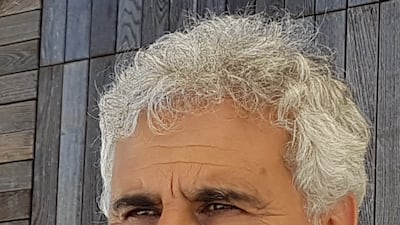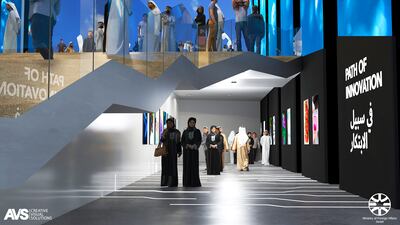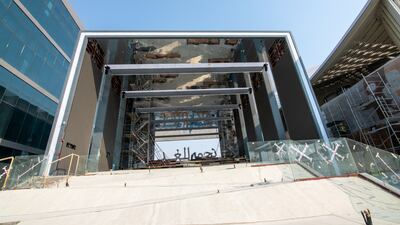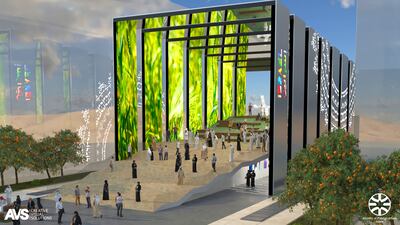Israel’s pavilion at Expo 2020 Dubai will highlight the ties that unite Middle Eastern countries, the project's lead architect has said.
The pavilion's sand dune theme will welcome guests under seven gates in a striking piece of architecture celebrating connectivity and innovation.
Lead architect David Knafo said the project focuses on what brings nations together rather than the politics that often divides.
“When you look at the traditional values of the Middle East you will see there is little difference between the people,” he said.
“There are similarities in terms of culture, language and their approach to each other.
“However the political gap between countries is huge.”
He was speaking to The National just days ahead of the first anniversary of the historic signing of the Abraham Accords between Israel and the UAE.
Fantastic pavilions at Expo 2020 Dubai:
Expo 2020 will also serve to showcase the benefits that Israel can bring, not just to the region but the entire world, he added.
“The isolation of Israel has been a problem, not just for Israel, but for the entire Middle Eastern region,” said Mr Knafo.
“We can all benefit where we share our resources especially when it comes to sectors like agriculture, food production and water treatment.
“These are areas where there will be shortages in the next few years so it is important to work together to overcome those mutual challenges.”
The theme of a sand dune was deliberately chosen for the pavilion as it has special resonance in the region, said Mr Knafo.
“If you want to be romantic about it then you can look at it as a tent where people can come in and talk and share ideas in a really friendly atmosphere."
The pavilion is designed to ensure maximum interaction for both those inside and outside.
“When we are at the 2015 Expo in Milan we saw the frustration from people who were not able to get into pavilions because of the queues,” he said.
“That’s why we wanted to create an open space, so people can still interact with the LED screens even if they are not in the interior.
“Most pavilions are closed boxes that you need to enter but that’s not the case with this one.”
Mr Knafo said it was vital for countries to have a presence at Expo 2020 Dubai, which was postponed by a year due to the Covid-19 pandemic.
“There is so much that still needs to be done to improve the lives of so many in the Middle East who are living not only in conflict but also in very basic living conditions,” said Mr Knafo.
“The expo can elevate the region and build a bridge with Israel on one side and the UAE on the other to show how close we are and how similar the daily challenges we face are too.”
Eitan Na’eh, Israel's head of mission to the UAE, said the pavilion was a platform for Israel to showcase its strengths.
“It’s an open tent to symbolise we are facing the future together hand in hand with the UAE and other countries,” he said.
“The pavilion gives a taste of what Israel represents to the region and to the world.
“It is no secret the pandemic slowed everyone down but Expo 2020 sends a message that despite the difficulties we all faced we are moving forward together.”

























